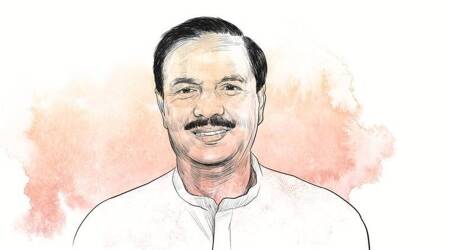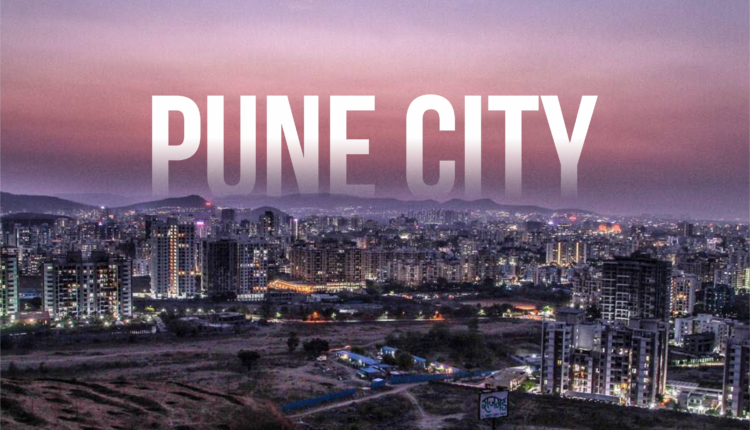The Pimpri-Chinchwad Municipal Corporation (PCMC) has decided to take its pilot zero-waste slum project across the industrial city in a phased manner, covering one slum each in eight divisional wards initially, municipal commissioner Shekhar Singh told The Indian Express Monday.
The PCMC has 72 slums under its jurisdiction. The PCMC collects and takes the wet and dry garbage from these slums to the Moshi garbage depot.
Since the project was set rolling on August 16 at Gawli Mata, the civic body has stopped collecting garbage from this slum located near the PCMC’s Rose Garden Nehrunagar area.
“All the wet garbage from this particular slum is collected and processed into compost while the dry garbage is taken away by rag pickers for recycling purposes,” said assistant municipal commissioner Anna Bodade, who heads the ‘C’ division of PCMC.
Subscriber Only Stories
 Premium
Premium Premium
Premium Premium
Premium Members of a Self Help Group who collect garbage from the Gawli Mata slums every day. (Express Photo by Manoj More)
Members of a Self Help Group who collect garbage from the Gawli Mata slums every day. (Express Photo by Manoj More)
The zero-waste slum project was initiated during the tenure of the then municipal commissioner Rajesh Patil as part of the Swachh Bharat Mission. “Each civic body is expected to implement the innovative project under the Swachh Bharat Mission. We are implementing the zero waste slum project, which seems to be a one-its-kind project in Maharashtra, if not in the entire country. The PCMC has shown the way to keeping the slum clean,” said Bodade.
A visit to the Gawli Mata slum Monday revealed there were no civic garbage bins at every nook and corner. But there was no garbage pile-up, as is common in slums in Pimpri-Chinchwad.
The credit, said civic officials, belongs to self-help groups. “The women members of self-help groups collect the garbage every day by going door to door. They have been given pushcarts to collect the garbage. They segregate the garbage into dry and wet ones.”
The wet garbage is brought to the Rose Garden where it is converted into compost. “We have set up a system in the Rose Garden. Pits have been dug where the wet garbage is dumped. It then gets converted into compost after a few days. The same compost is used in the garden and is also given out for agricultural purposes,” said Bodade.
The PCMC has decided to pay a lumpsum amount to self-help groups. “This zero waste slum project is leading us to big savings on expenditure. First, we don’t have to collect the garbage in vehicles. Secondly, we don’t need to transport them to the Moshi garbage depot. Thus, we save a lot of money on fuel and transportation costs,” the PCMC chief said.
Bodade said before the project was initiated in August, the PCMC used to everyday lift 600 kg of waste from the Gawli Mata slums. The work was allotted to a contractor. “Now, we have to neither lift any garbage from here nor transport it. We collect it to convert it into compost. We are thus collecting the garbage and processing it at source,” he said.
The PCMC chief said, “The project has given us a clue about how to decentralise the whole process of collection and segregation of waste. There are a few things which can be decentralised but there are other things which will have to remain centralised. A decentralised model is always the preferred one. The concept in Gawli Mata slums was started with the objective of processing waste in the same slum. We have successfully involved the self-help groups in this whole process. Their involvement is the key component of this concept. The self-help groups are playing a major role in interacting with the local help, creating awareness relating to segregation of dry and wet waste.”
Singh said PCMC attached Rose Garden with the project. “The presence of a garden near the slum has helped in setting up the system where we have installed compost pits and organic waste composters and brought shredders. The compost from the wet waste is being used in the garden itself,” he said.
Mangal Wadkar, who heads the local self-help group, said, “Our women members work from 7.30 am to 3 pm. We collect garbage door-to-door. The wet garbage is taken to the compost pits while the dry garbage is given to ragpickers. We have been trained in handling the compost pits. We don’t face any problems from the local people. Most of them gather at the nearby chowks to hand over their collected garbage to us. Besides collecting garbage from residents, we also ensure that the garbage is not found lying anywhere in the slum. And that is the reason you will find that our slum area is free from any waste.”
Wadkar said PCMC promised them that it would be paying them for participating in the process as the stakeholder.
“The amount that we get from PCMC will help us to look after our families without having to search for jobs far away from our homes,” she said.


